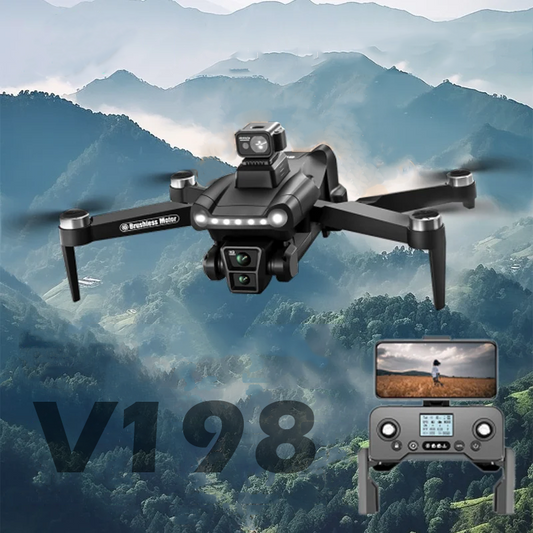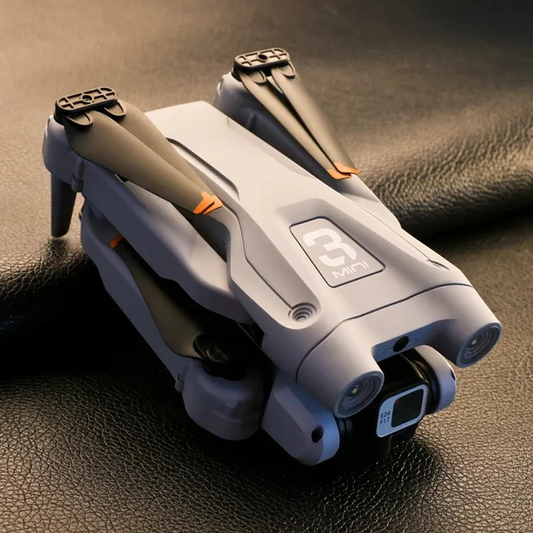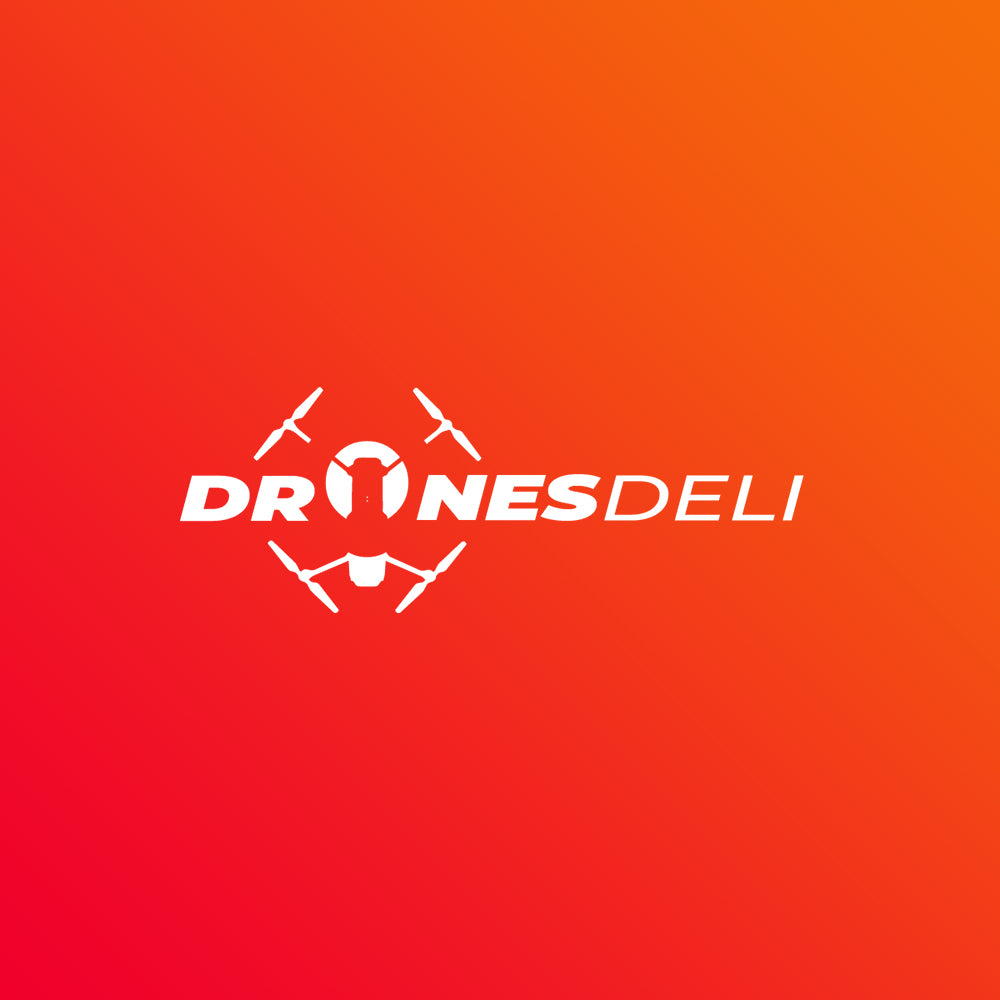Drone-Based Medical Deliveries in Remote Areas

In today's rapidly advancing technological landscape, drones have emerged as more than just recreational gadgets or tools for capturing stunning aerial shots. They have found a crucial role in various industries, one of the most promising being healthcare. With the ever-growing need for efficient and timely medical services, especially in remote and inaccessible areas, drone-based medical deliveries are proving to be a game-changer.
The Need for Innovation in Remote Healthcare

Remote areas often face the challenge of limited access to essential healthcare services. Whether due to geographical barriers, harsh weather conditions, or underdeveloped infrastructure, these regions are frequently underserved in terms of medical support. In emergencies, the lack of quick access to medical supplies can lead to devastating consequences.
Traditional methods of transporting medical supplies to remote areas, such as ground transportation or even helicopters, often come with significant limitations. Ground vehicles can be hindered by rough terrains, while helicopters are expensive and may not be feasible in certain weather conditions. This is where drone technology steps in, offering a faster, more cost-effective, and flexible solution.
The Rise of Drone-Based Medical Deliveries

1.Speed and Efficiency
Drones are designed to navigate through challenging terrains swiftly, delivering medical supplies at a pace previously unimaginable. In emergency situations, every minute counts, and the speed of drone-based deliveries can make a crucial difference in saving lives.
By bypassing ground obstacles and reaching destinations directly, drones significantly reduce the delivery time compared to traditional methods. This efficiency is particularly vital when delivering life-saving drugs, vaccines, or other medical essentials.
2.Cost-Effectiveness
Traditional methods of transporting medical supplies to remote areas can be prohibitively expensive. Helicopters, for example, incur high operational costs. In contrast, drones offer a more cost-effective solution, requiring less manpower and fuel for operation.
The affordability of drone-based medical deliveries makes it a sustainable option for healthcare providers and organisations working with limited budgets. This cost-effectiveness ensures that even remote and underserved areas can access crucial medical supplies without the financial burden associated with traditional delivery methods.
3.Accessibility in Challenging Terrains
Many remote areas are characterised by rugged landscapes, dense forests, or mountainous regions, making accessibility a significant challenge. Drones can effortlessly navigate through these terrains, reaching destinations that are otherwise difficult or impossible for traditional vehicles to access.
This increased accessibility is a game-changer for healthcare in remote areas. It means that even the most secluded communities can receive timely medical assistance, breaking down barriers that have long hindered healthcare delivery.
4.Temperature-Sensitive Deliveries
Certain medical supplies, such as vaccines and blood products, are highly sensitive to temperature variations. Traditional transportation methods may struggle to maintain the required temperature during transit, compromising the effectiveness of these supplies.
Drones equipped with specialised containers can maintain a controlled temperature environment, ensuring that temperature-sensitive medical deliveries remain intact and effective. This capability is especially critical when reaching remote areas with limited access to refrigeration facilities.
5.Reducing Dependency on Infrastructure
One of the primary advantages of drone-based medical deliveries is the reduced dependency on existing infrastructure. Unlike traditional transportation methods that rely on well-developed road networks or landing sites for helicopters, drones can take off and land in minimal space.
This flexibility is invaluable in remote areas where constructing and maintaining extensive infrastructure is often impractical. Drones can deliver medical supplies directly to the intended destination, whether it's a remote village, a disaster-stricken area, or a location with limited connectivity.
Overcoming Challenges and Ensuring Safety

While the potential benefits of drone-based medical deliveries in remote areas are undeniable, several challenges must be addressed to ensure the safety, reliability, and ethical use of this technology.
1.Regulatory Compliance
The use of drones for medical deliveries must adhere to strict regulatory guidelines. Governments and aviation authorities need to establish and enforce regulations to ensure the safe and responsible deployment of drones in healthcare. Compliance with air traffic regulations and privacy considerations is paramount to the success of drone-based medical delivery systems.
2.Technological Advancements
Continued advancements in drone technology are essential for overcoming current limitations. This includes improving the range, payload capacity, and battery life of drones. Additionally, the development of advanced navigation systems and obstacle-avoidance technologies will enhance the overall safety and reliability of drone-based medical deliveries.
3.Community Engagement and Education
Introducing drone technology to remote communities requires effective engagement and education. Local residents need to understand the benefits and potential risks associated with drone-based medical deliveries. Establishing trust and addressing concerns about privacy and safety are crucial steps in the successful integration of drones into healthcare services in these areas.
Future Outlook

As technology continues to evolve, the future looks promising for drone-based medical deliveries in remote areas. Research and development in this field are ongoing, with innovations such as drone fleets and automated delivery systems on the horizon.
1.Drone Fleets
The concept of using fleets of drones working together is gaining traction. This approach could further enhance delivery capacity, enabling the simultaneous transport of multiple medical supplies to different locations. Coordinated drone fleets have the potential to revolutionise the scale and efficiency of healthcare delivery in remote areas.
2.Automated Delivery Systems

Advancements in artificial intelligence and automation are paving the way for fully automated drone delivery systems. These systems could operate without human intervention, further reducing the risk of errors and increasing the reliability of medical deliveries. However, ethical considerations and safety protocols must be rigorously addressed before widespread implementation.
Drone-based medical deliveries are reshaping the landscape of healthcare in remote areas. With their unparalleled speed, efficiency, and accessibility, drones offer a lifeline to communities that have long struggled to access essential medical services. While challenges remain, ongoing advancements and a commitment to regulatory compliance and community engagement hold the key to unlocking the full potential of drone technology in healthcare.
As we navigate the future of healthcare delivery, the skies are no longer just a vast expanse but a pathway to hope for those in the remotest corners of the world. Drone-based medical deliveries are not just a technological marvel; they are a beacon of progress, bridging the gap between healthcare and the most underserved populations on our planet.
Explore a variety of drones at our online drone store.
Happy Flying!









